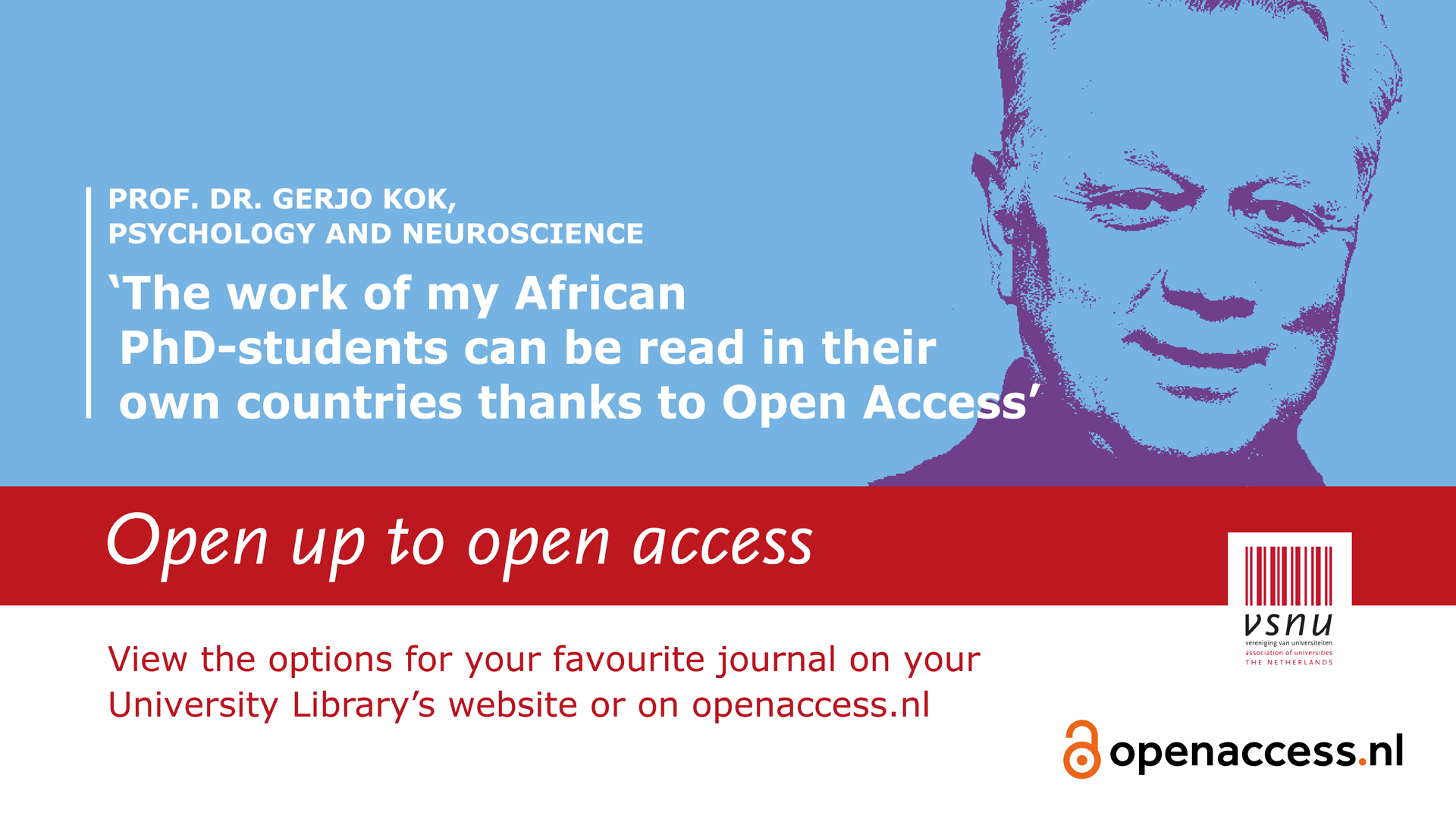“A solid review process is and will remain important”
Gerjo Kok has been an emeritus professor for more than a year, but two things in particular are still keeping him busy: supervising PhD candidates at the Faculty of Psychology and Neuroscience, and his commitment to open access. “The question is whether we can do without commercial publishers. Maybe, but we’d need to come up with a watertight system for reviews.”
Kok describes himself as a member of the ‘hard-copy’ generation. “I still occasionally print out emails, much to the amusement of younger colleagues and students. And I definitely prefer to read academic articles on paper. But I realise that paper is on its way out as a means of spreading information. The same goes for hard copies of academic journals – they can just as well be published online. The vast majority of titles in my field have been digitalised in recent years. I’m fine with it.”

Barriers
With his comments, Kok – an applied psychologist and former dean of the Faculty of Psychology and Neuroscience – puts his finger on a sore spot in the debate on open access. The most reputable academic journals are the ones that continue to put up barriers when it comes to the free dissemination of academic research and publications. If they were to go bust during the inevitable march towards digitalisation, this would free up the path to open access. A variety of independent, online publication platforms are already popping up and the pressure on the established order is growing.
Publications
“It’s not easy, though.” Sitting in his office in the university building along the A2, Kok plays down the expectations. “Many academics and researchers are still strongly attached to publications in journals like Nature and The Lancet. Departments and universities are assessed on their number of publications in established journals and the number of times these articles are cited. Ignoring this fact is not an option. Meanwhile, big publishers are developing new revenue models. Now they not only expect universities to pay subscription fees, but you also have to pay for publications. They’re drawing up contracts and special deals with universities and switching to digital issues themselves, so the question of hard or soft copy is no longer relevant. The role of the publishers is far from being played out.”
And it’s not clear that it needs to be, the professor continues. “The top publishers do good work. They edit the text, do the formatting and organise distribution. And, very importantly, they make sure the articles are peer-reviewed. If this system of solid, reliable peer reviews were to disappear, something would need to replace it. It’s possible – universities themselves could set up such a system. But it involves a great deal of work. There’s a commercial component to it, and it would mean competing with commercial publishers. That’s not the strongest suit of universities.”
Reviews
Actually doing the reviews is getting trickier, too. “There are just so many things that get published; every year the number of articles and dissertations increases exponentially. I get requests to review papers every day and the same goes for many experienced colleagues. Reviews are labour-intensive; time you usually don’t have. It’s also unpaid, and therefore not mandatory – it’s essentially voluntary work. Even just including reviews in the day-to-day work of an academic would help to change the system in a big way.”
So Kok is not expecting a revolution in the short term. But the playing field is changing, he believes. More and more academics are calling for open access and ‘open science’ and seeking out alternative platforms and channels. Kok hopes the increasing pressure on established publishers will force them to compromise. “Fair publication fees and more data that people can actually access and use. I still see studies being published where you can’t access the dataset they’re based on. And often parts of studies that didn’t ‘fit’ with the research or weren’t done well are nowhere to be found. I think it should be possible to trace absolutely everything; only then do you have ‘pure’ research and open access.”
Africa
Open access can also play an important role in the development of university education in poor countries. “Every year we at the Faculty of Psychology and Neurosciences help to supervise PhD candidates from various African countries. This means they get access to everything we have access to through our University Library. Many universities in Africa don’t have the money for those kinds of resources. Through the PhD candidates, we’re able to unlock that knowledge for them. Of course, it would be better if the sources were cheaper or even free. Ultimately, science and scholarship are paid for by society, and it’s strange that publishers then go and earn money off it – money they only partly invest in better search engines and accessibility. But I do also understand the role of publishers, the commercial factor. I think other platforms will gain ground in the coming years, but established publishers have the right to exist too.
Also read
-
In Kerkrade, you can listen to the invisible universe
UM and Discovery Museum in Kerkrade make the Einstein Telescope understandable for everyone.
-
Maastricht University ranked #3 worldwide and #1 in Europe in 2025 Better World MBA Ranking
We are incredibly proud to share that the MBA programmes of Maastricht University School of Business and Economics’ executive branches, MSM and UMIO, have once again been recognised among the very best sustainable business MBA programmes worldwide. In the 2025 Better World MBA Ranking by Corporate...
-
